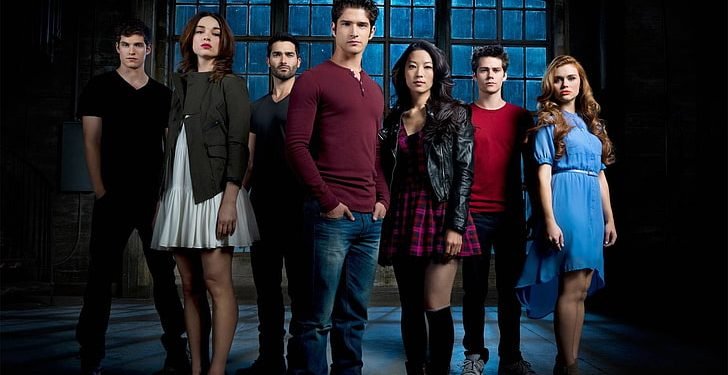Teen Wolf: The Movie picks up the plot more than a decade after the original finale, but the film would have been far better as a television show. Teen Wolf: The Movie reunites Scott McCall (Tyler Posey) and the majority of his pack to take on the Nogitsune (Aaron Hendry) once more.
The Nogitsune, seeking vengeance, orchestrated Allison Argent’s (Crystal Reed) resurrection to break the pack apart and kill Scott, only to be foiled by the pack’s faith in one another. The ending of Teen Wolf: The Movie is both tragic and hopeful, as Scott and Allison are given a second chance at love, and the next generation of the Hale family takes centre stage.
Teen Wolf: The Movie crams a lot of action into its nearly two-and-a-half-hour running time, but it never feels enough. The Nogitsune’s entire plan of assault is carried out and foiled inside the plot, and while the ending is satisfying, the whole film leaves many subjects unexplored.
Though the idea of a Teen Wolf resurrection years after the programme stopped was a nice one, as it allows fans to reconnect with their favourite characters and discover where they ended up as adults, Teen Wolf: The Movie falls short in execution, owing to its storytelling approach.
Teen Wolf’s Big Cast Couldn’t Get Enough of a Movie
Teen Wolf: The Movie includes a large cast, despite the absence of a few significant characters, most notably Dylan O’Brien’s Stiles and Arden Cho’s Kira Yukimura. Yet, while the programme was always able to manage its wide array of characters effectively enough to offer each of them their growth arcs and strengthen their connections with one another, Teen Wolf: The Movie doesn’t get enough time to focus on its characters.
If the Teen Wolf’s resurrection had been a show or even a miniseries, the authors would have had more time to balance the plot of Nogitsune with building on the characters’ contemporary lives and relationships.
Teen Wolf: The Movie simply had too complicated a supernatural plot to handle. Aside from Scott and Allison, Lydia (Holland Roden), and Derek (Tyler Hoechlin), most of the cast appear as cameos. The alleged best friends, Liam (Dylan Sprayberry) and Mason (Khylin Rhambo), barely interacted.
Malia (Shelley Hennig) was relegated to just Parrish’s (Ryan Kelley) love interest, with no explanation for how they met. Jackson (Colton Haynes) simply returned to flaunt his sarcastic personality. These characters deserved further development, and the viewers deserved to spend more time with them, which a TV programme format could have provided.
The Teen Wolf Mythology is squandered in film form.
Teen Wolf’s ability to build up otherworldly secrets was one of the show’s highlights. The characters constantly needed time to become acquainted with a new mythology and correct their inevitable mistakes when attempting to defeat their amazing opponents.
The stories were well-structured and easy to follow, allowing the writers to expand on their Teen Wolf’s supernatural world-building. However, in Teen Wolf: The Movie, the narrative is forced to utilise the Nogitsune’s return as an excuse, relying on the audience’s past knowledge of the creature to hurry through the supernatural tale beats required by the Teen Wolf revival’s movie format.
If the Teen Wolf’s resurrection had been a series rather than a film, the authors would have had the opportunity to explore a mythos that wasn’t already well-known and conquered.
Though the Nogitsune’s goal for vengeance seems credible, and its devious plan fits with the villain’s customary strategy, the villain’s backstory and powers were adequately explored in Teen Wolf season 3. As a result, the Nogitsune scenario in Teen Wolf: The Movie is overly predictable and familiar, and the revival would have been better served by presenting an altogether new supernatural menace.
The Teen Wolf film left too many plot holes and unanswered questions.
Teen Wolf: The Movie’s runtime was a constraint. In only two and a half hours, it had to introduce new characters, familiarise the audience with old ones, present a whole story, and deal with romance, friendships, and tragic character death.
It’s not surprising that some items were left out, but these omissions damage the overall experience of the Teen Wolf remake. If there is no sequel, the audience may never find out who Eli Hale’s (Vince Mattis) mother is, how Liam and Hikari (Amy Workman) met, how Scott knew he could “take” Hikari’s Kitsune spirit, the intricacies of Allison’s resurrection, or the events of Stiles and Lydia’s split.
A Teen Wolf comeback TV series would have given the opportunity to solve all these topics and more. Teen Wolf: The Movie is finished but feels incomplete as if it’s only the beginning of a larger story rather than an entire movie in its own right.
While this may have been done on purpose to build up a movie sequel or maybe a sequel series, it’s a shame because any new Teen Wolf endeavour will almost certainly centre on a new generation, leaving the old guard behind. Teen Wolf: The Movie lacks the enchantment that made its predecessor so enjoyable, and much of this is due to its storytelling medium.
